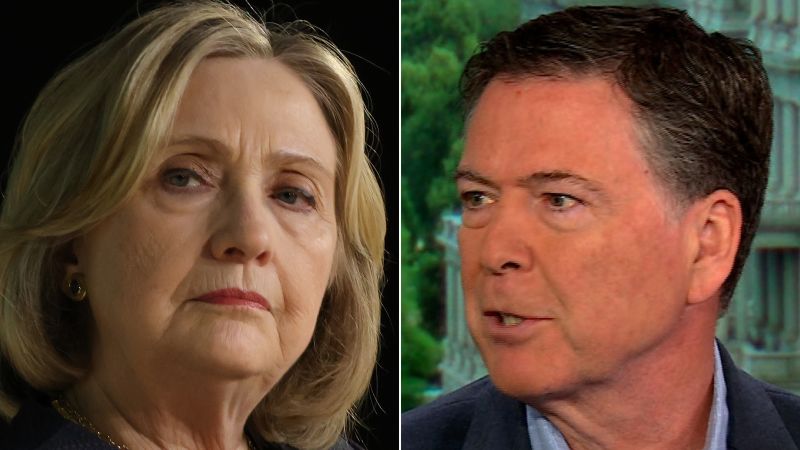In a recent interview, former FBI director James Comey was asked if he regretted the FBI’s investigation into Hillary Clinton’s emails during the 2016 presidential campaign. Clinton had recently criticized Comey for reopening the investigation just days before the election, which she believes may have cost her the presidency. In response, Comey stated that he did not regret the investigation but acknowledged that it was a difficult decision to make. He explained that the FBI had to balance transparency and integrity without appearing to be influenced by politics.
Comey went on to defend his handling of the investigation into Clinton’s emails, stating that he believed the FBI had conducted a thorough and fair investigation. He admitted that mistakes were made in the process but maintained that the overall decision to reopen the investigation was the right one. Comey also highlighted the challenges that the FBI faced during the investigation, particularly in balancing public disclosure with maintaining the integrity of the investigation. He emphasized the importance of transparency in such high-profile cases, noting that the FBI had to be mindful of the impact of its actions on the public perception of the investigation.
During the interview, Comey also discussed his interactions with President Trump and the circumstances surrounding his firing as FBI director. He described feeling uncomfortable with the president’s demands for loyalty and his attempts to interfere with the FBI’s investigation into Russian interference in the 2016 election. Comey revealed that he had kept detailed notes of his conversations with Trump to ensure that he had a record of events in case he needed them in the future. Ultimately, Comey’s firing by Trump raised concerns about potential obstruction of justice and led to the appointment of special counsel Robert Mueller to investigate.
Despite the controversy surrounding his actions during the 2016 election, Comey maintained that he tried to act with integrity and uphold the principles of the FBI. He acknowledged that mistakes were made along the way but defended the decisions that he made based on the information available at the time. Comey also expressed regret over the impact that his actions may have had on the election and the public perception of the FBI. Moving forward, Comey emphasized the importance of learning from past mistakes and working to rebuild trust in the FBI and other institutions of government.
In conclusion, Comey’s reflections on the Clinton email investigation shed light on the complexities and challenges faced by law enforcement officials in high-profile cases. Despite criticism from Clinton and others, Comey stood by his decisions and defended the integrity of the FBI’s investigation. His interactions with President Trump and subsequent firing raised concerns about political interference in law enforcement matters, highlighting the importance of maintaining independence and integrity in such investigations. Comey’s commitment to transparency and accountability serves as a reminder of the critical role that institutions like the FBI play in upholding the rule of law and ensuring trust in government.


